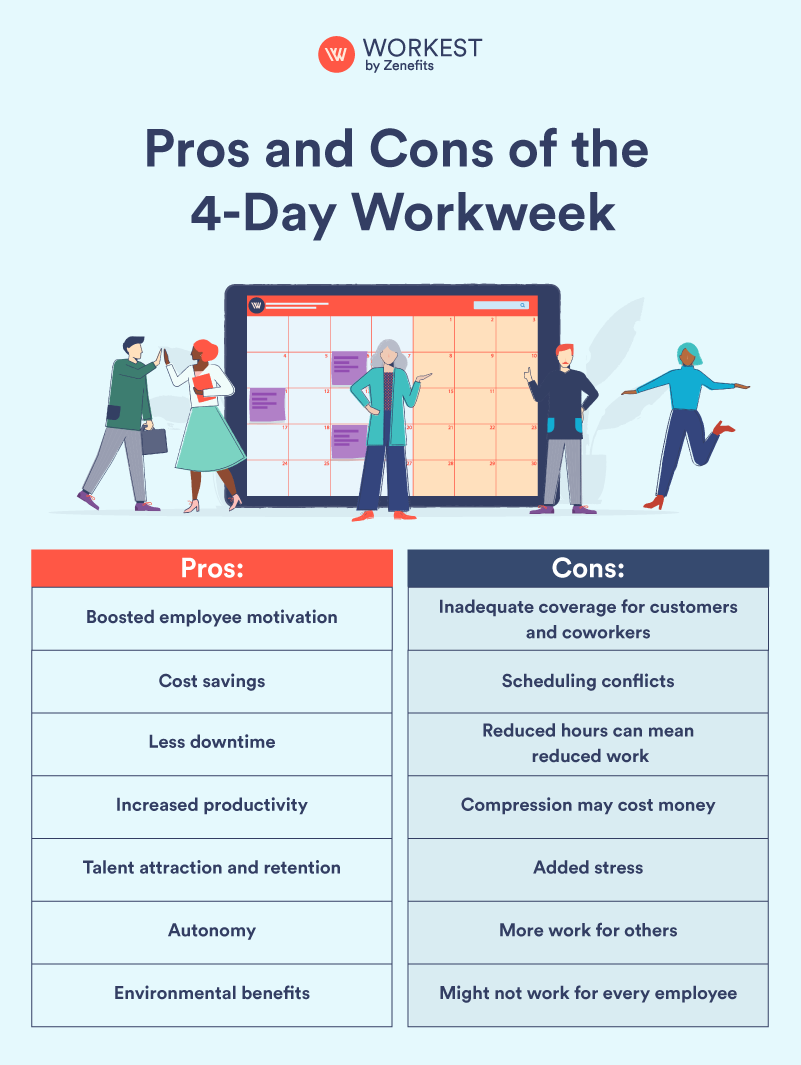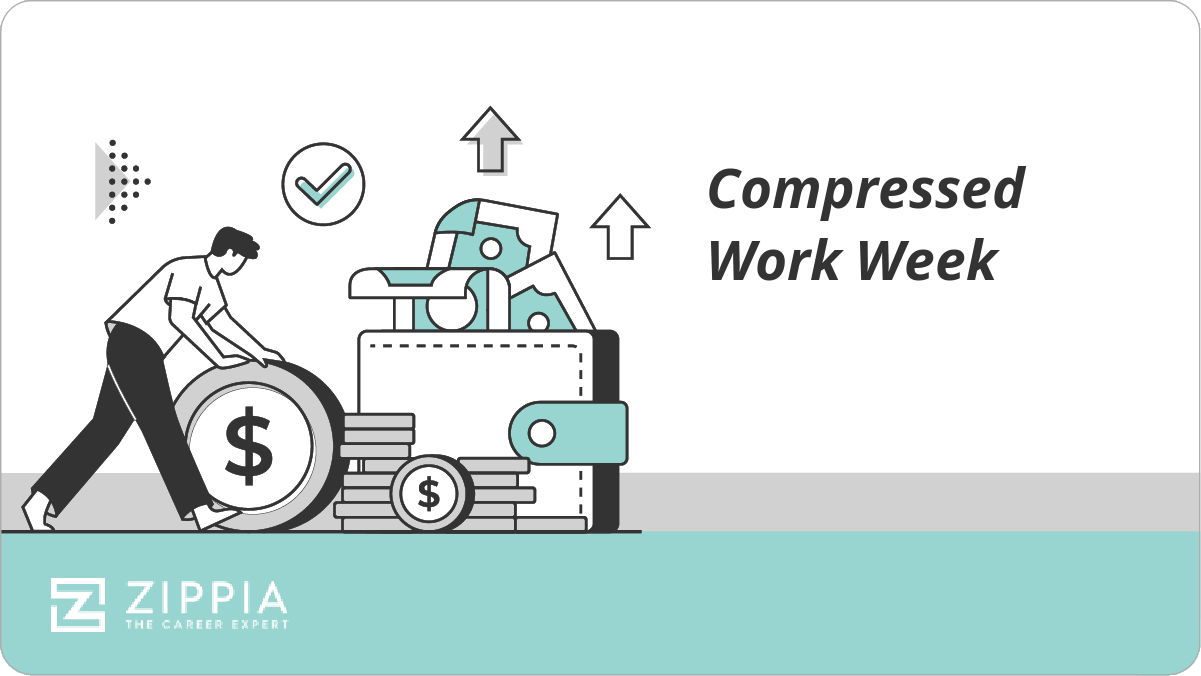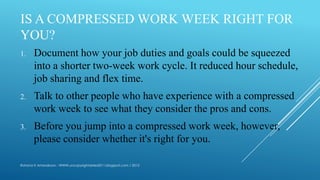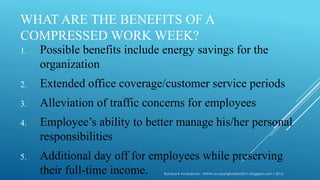Compressed Work Week Pros and Cons
In an effort to attract and retain workers many businesses are considering making changes to the standard workweek and moving to a 4-day workweek. The 410 work schedule does not work for some companies.

The 4 Day Workweek Pros And Cons Workest
Many employees really appreciate the flexibility that comes with a workweek schedule of four 10-hour days because it means a three-day weekend.

. This schedule can involve working fewer hours each week or compressing your regular work hours into a shorter period such as working four 10-hour days instead of five 8-hour days. A compressed workweek refers to a schedule for employees to work full-time hours in fewer than five days. Because employees automatically get time or days off during the workweek with a compressed schedule they are less likely to take time.
A compressed schedule allows for bigger blocks of personal. Every coin has two sides. Companies considering flexible schedules such as compressed work weeks should consider all the pros and cons before implementing new policies.
In addition their productivity increased and 94 of employees felt that their employees cared about them. The same applies to a compressed workweek as well. This schedule may involve working fewer total hours each week or shifting your regular work hours to a four-day period eg working four 10-hour days.
A compressed workweek generally means working four days instead of five. You can see my economic model here which shows the difference in earnings of a 4 day per week role and 5 day per week role over 10 years. One report from The Atlantic shows that those working four days reported feeling happier healthier and less stressed.
Having scheduled days off gives employees opportunities to spend time running. 6 pros and cons to weigh in before implementing a compressed workweek. 32 hours divided into a 4-day work period the typical 8-hour work day will stay at 8 hours in the timeframe of 4 days.
Compressed workweeks are becoming increasingly popular. To pick between the two pay attention to how your business runs the lifestyle of your employees. So if your employees typically work a 40-hour week from Monday to Friday they would instead work 10 hours per day for only 4 days of the week.
The people I know who do a Compressed Week do it because they want to maintain their full time salary and be paid fairly for the work that they do. Nov 8 2021 13 min read. In addition Healthwise an Idaho company told NPR they had better.
Pros of a compressed work schedule. Understanding and preparing for these problems allows each. This arrangement means that an employee works four 10 hour days during the week usually Monday through Thursday.
Reduced 4-Day Work Week. Discover the pros and cons of compressed workweek and tips on how to transition to this popular schedule. The cons of a 4-day workweek.
The standard compressed work week squeezes 5 days of work into 4. Having to work fewer days a week while putting in the necessary. This would be then followed by a 3-day weekend from Friday to Sunday.
This gives them Friday through Sunday off. Another example is working four days in one week and five days every other week. Compressed work schedules come with many benefits to your organization.
Some of these benefits are. But there are alternative schedules to consider such as the. Although these are two different approaches to a 4-day work week one is not better than the other.
Similarly a company may offer compressed working. The 410 work schedule is the most common type of compressed workweek. Many workers are reacting favorably to the shift whether it gives.
If youre in a service business where customers depend on you for ongoing support taking three days off every week might irritate them. A candid look at the pros and cons of a 4-day workweek plus real-world tips for pulling it off. As a result some are looking at compressed time moving from an 8-hour day 5 days a week to 10-hours per day for only 4.
A typical example of a compressed work schedule is an employee working ten hours a day four days a week. Although there are advantages to shorter work weeks experience has shown a number of disadvantages as well. From higher productivity to fewer absences there are several tangible positive changes that organizations have seen in implementing a compressed work week policy.
Looking at the Pros of a Four-Day Work Week. A compressed workweek means working four days instead of five. Some of these benefits are.
Having scheduled days off gives employees opportunities to spend time running errands completing household tasks enjoying a hobby or with family. I did a Compressed Work Week when I returned from mat leave in early 2019 - I was the first in my company of 40000 people to do a Compressed Week one of Australias top 4 banks and I loved it.

What Is A Compressed Work Week

Compressed Work Week What Is It With Examples Zippia


0 Response to "Compressed Work Week Pros and Cons"
Post a Comment